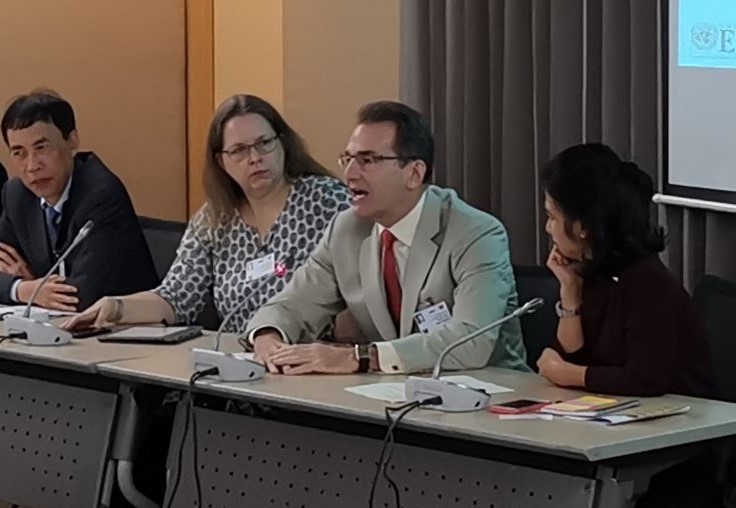Research Fellow talks about trade war impact on ASEAN at UNESCAP event
Published 19 December 2019
Hinrich Foundation Research Fellow Stephen Olson took part in a panel discussion, titled “Policy Uncertainty, Trade Tension and ASEAN”, at the 4th ASEAN Economic Integration Forum, on December 9, 2019, in United Nations Conference Centre (UNCC), Bangkok, Thailand.
The two-day forum was organised by United Nations Economic and Social Commission For Asian and the Pacific (UNESCAP), The National University of Malaysia and the World Trade Institute. The forum aims to provide a platform that allows global leaders from social society, industry, academia and government to discuss innovative solutions and to tackle obstacles that are shared among all the members of ASEAN Economic Community (AEC).

The panel discussion focused on how ASEAN members are affected by trade tension between the US and China, and the possibility of converting these “war gains” into long-term gains for ASEAN members. The talk was chaired by Chanintira Na Thalang, Associate Professor at Thammasat University. The panellists included:
- Deborah Elms – Founder and Executive Director – Asian Trade Centre
- Stephen Olson – Research Fellow – Hinrich Foundation
- Henry Gao – Professor – Singapore Management University
- Juergen Keitel – European Adviser – IKMAS
During the discussion, Olson opined that the trade war has benefited Vietnam in terms of production relocation. However, the country falls behind China in capacity building, especially in areas of skill and port infrastructure. It will, therefore, be difficult for it to match the capacity that China has built over the years.
He also said trade war has helped Vietnam increase export but with the increase in trade surplus with the US, there is likelihood that Vietnam may face undesirable attention from the US. The country could be saddled with tariffs on other goods too, like the recent 200% tariffs on steel by the US. This may offset the benefits it had derived from the US-China trade war.
© The Hinrich Foundation. See our website Terms and conditions for our copyright and reprint policy. All statements of fact and the views, conclusions and recommendations expressed in this publication are the sole responsibility of the author(s).

